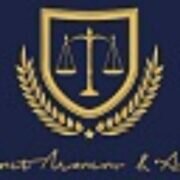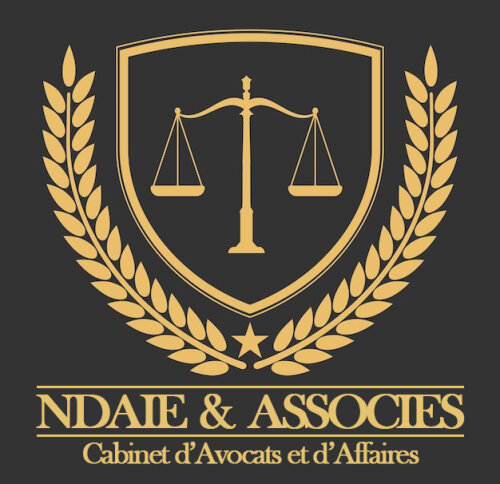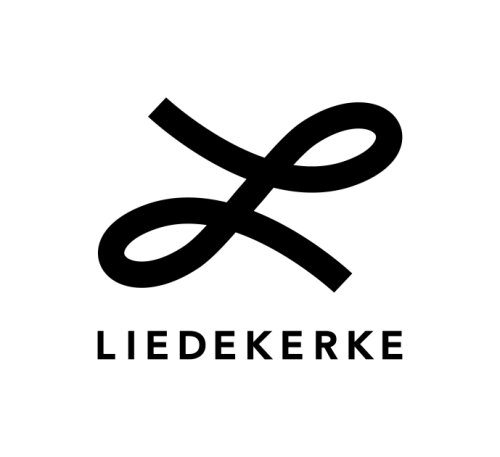Best Structured Finance Lawyers in DR Congo
Share your needs with us, get contacted by law firms.
Free. Takes 2 min.
Or refine your search by selecting a city:
List of the best lawyers in DR Congo
About Structured Finance Law in DR Congo
Structured Finance in the Democratic Republic of Congo (DR Congo) represents a specialized area of finance involving complex financial instruments used to manage risk, capitalize on assets, and raise significant capital. In DR Congo, Structured Finance often revolves around sectors like mining, energy, infrastructure, and agriculture. Transactions in this field may include asset-backed securities, project finance, syndicated loans, and securitization of receivables. Legal frameworks and practices in DR Congo are still evolving to keep pace with the dynamic demands of modern finance, making legal guidance crucial for both local and foreign investors.
Why You May Need a Lawyer
Structured Finance transactions in DR Congo can be complex due to the involvement of multiple parties, substantial assets, and multi-jurisdictional elements. You may need a lawyer in the following situations:
- Drafting and negotiating loan agreements or security documents
- Understanding regulatory requirements for financial instruments
- Structured deals involving public or private sector entities
- Resolving disputes between creditors, borrowers, or third parties
- Due diligence on assets or corporations involved in deals
- Cross-border financing and compliance with foreign legal systems
Legal professionals help prevent costly errors, ensure compliance, and protect your interests in high-value or high-stakes transactions.
Local Laws Overview
DR Congo’s legal environment for Structured Finance is shaped by a combination of national legislation and regional regulations, particularly from the Organisation for the Harmonisation of Business Law in Africa (OHADA). Here are some key aspects:
- OHADA Uniform Acts: DR Congo is a member of OHADA, whose Uniform Acts govern commercial companies, secured transactions, and bankruptcy, providing a unified legal framework across member states.
- Central Bank Regulation: The Central Bank of Congo sets financial sector rules, including licensing and regulatory oversight for banks and non-bank financial institutions engaged in Structured Finance.
- Foreign Investment Laws: Specific laws regulate foreign participation and capital repatriation, factors often relevant in cross-border Structured Finance deals.
- Securities and Capital Markets: The legal environment is developing, but there are regulations on issuing bonds, asset-backed securities, and other structured products.
- Taxation: Tax incentives and obligations differ according to the type and structure of transactions, often impacting deal viability.
- Mining and Natural Resources Law: Structured transactions frequently leverage mining or resource assets, requiring compliance with sector-specific legislation.
Due to the interplay of various laws and the ongoing reforms, professional legal support ensures each transaction adheres to all applicable requirements.
Frequently Asked Questions
What is Structured Finance?
Structured Finance refers to sophisticated financial arrangements that help companies or projects raise funds by pooling assets, issuing securities, or creating specialized financial products, often backed by revenues or assets.
Is Structured Finance legal in DR Congo?
Yes, Structured Finance is legal provided it complies with national and regional regulations, especially the OHADA Uniform Acts and Central Bank guidelines.
Who regulates Structured Finance in DR Congo?
The Central Bank of Congo oversees financial institutions and transactions. OHADA Uniform Acts apply to commercial and secured transactions, and sectoral ministries may be involved for industry-specific deals.
Are foreign investors allowed to participate in Structured Finance deals?
Foreign investors can participate, but they must comply with DR Congo’s investment laws, currency controls, and any sector-specific limitations.
What types of assets can be used in Structured Finance?
Common assets include receivables, loans, equipment, properties, natural resource rights, and future revenues from projects or concessions.
How are disputes resolved in Structured Finance cases?
Disputes are generally resolved through court proceedings in DR Congo, though arbitration or other alternative dispute resolution methods can be used if agreed by the parties.
What are the risks of Structured Finance in DR Congo?
Risks include legal and regulatory uncertainty, foreign exchange controls, change of law, counterparty risk, and enforcement challenges.
Do Structured Finance deals require approval by authorities?
Certain transactions, especially involving public assets or cross-border elements, may require government or Central Bank approvals.
Can individuals or only companies engage in Structured Finance?
Generally, companies or legal entities are parties to Structured Finance transactions, though individuals can participate through investment vehicles or as sponsors.
Is local legal due diligence necessary?
Yes, thorough legal due diligence is essential to verify asset ownership, existing liabilities, regulatory compliance, and deal structure validity before proceeding.
Additional Resources
Here are organizations and governmental bodies that can provide more information or support with Structured Finance matters in DR Congo:
- Central Bank of Congo - Main financial sector regulator
- OHADA National Commission - Source of commercial law and updates
- DR Congo Ministry of Finance - Regulates public finance and investment incentives
- The Congolese Bar Association (Ordre des Avocats) - Directory of licensed lawyers
- Chamber of Commerce and Industry - Business registration and support
- National Agency for Investment Promotion (ANAPI) - Support for local and foreign investors
Next Steps
If you require legal advice or representation in Structured Finance in DR Congo, consider the following steps:
- Identify your specific transactional needs, such as financing, asset securitization, or risk management.
- Consult an experienced lawyer or law firm with a background in Structured Finance and familiarity with DR Congo and OHADA laws.
- Gather all relevant documents, such as financial statements, asset details, contracts, and business registrations.
- Request a consultation to discuss your objectives, identify legal challenges, and receive guidance on structuring and compliance.
- Work closely with your lawyer throughout negotiations, due diligence, documentation, and transaction execution to ensure your interests are protected at every stage.
Given the complex and evolving nature of Structured Finance in DR Congo, securing the right legal expertise is key to achieving a successful, compliant, and secure transaction.
Lawzana helps you find the best lawyers and law firms in DR Congo through a curated and pre-screened list of qualified legal professionals. Our platform offers rankings and detailed profiles of attorneys and law firms, allowing you to compare based on practice areas, including Structured Finance, experience, and client feedback.
Each profile includes a description of the firm's areas of practice, client reviews, team members and partners, year of establishment, spoken languages, office locations, contact information, social media presence, and any published articles or resources. Most firms on our platform speak English and are experienced in both local and international legal matters.
Get a quote from top-rated law firms in DR Congo — quickly, securely, and without unnecessary hassle.
Disclaimer:
The information provided on this page is for general informational purposes only and does not constitute legal advice. While we strive to ensure the accuracy and relevance of the content, legal information may change over time, and interpretations of the law can vary. You should always consult with a qualified legal professional for advice specific to your situation.
We disclaim all liability for actions taken or not taken based on the content of this page. If you believe any information is incorrect or outdated, please contact us, and we will review and update it where appropriate.
Browse structured finance law firms by city in DR Congo
Refine your search by selecting a city.















